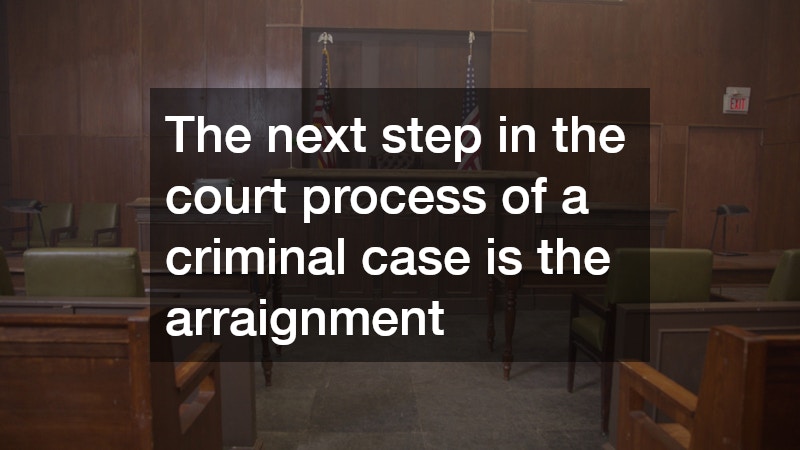
The court process in a criminal case often begins with an investigation. Law enforcement agencies gather evidence to determine whether a crime has been committed. If there is sufficient evidence, an arrest warrant may be issued. This phase is crucial as it lays the groundwork for the prosecution and the defense teams. The role of criminal defense lawyers at this stage is to ensure that the rights of the accused are protected.
Once an arrest is made, the suspect is taken into custody. The individual is informed of their rights, commonly known as Miranda rights, which include the right to remain silent and the right to an attorney.
It is at this juncture that a criminal defense lawyer begins to work closely with the accused. The defense attorney may start constructing possible defenses and strategies for when the case proceeds to court. They will also make sure that the initial investigation was conducted lawfully.
Following an arrest, the suspect must be charged formally for the court process to continue. This involves the prosecution presenting the evidence collected to a judge, who then decides if there is enough justification to charge the individual. The charges can vary widely depending on the nature of the alleged crime. Criminal defense attorneys play a pivotal role in ensuring that no unlawful means were used in gathering evidence. They might file motions to dismiss any evidence obtained illegally during the investigation or arrest.
Arraignment and Bail
The next step in the court process of a criminal case is the arraignment. During an arraignment, the accused appears before a judge to hear the charges against them and to enter a plea. Options typically include pleading guilty, not guilty, or no contest. The arraignment serves as a critical opportunity for the criminal defense attorney to negotiate bail terms. In some cases, the court may release the accused on their recognizance.
Setting a bail amount is one of the key decisions during the arraignment. Bail is a financial arrangement that allows the accused to remain free until their trial, provided that they adhere to specific conditions set by the court. The defense team often advocates for lower bail amounts by presenting arguments on behalf of the accused’s character and community ties. The goal is to ensure the accused’s rights are respected while maintaining an equitable justice process. This phase is essential for preparing the accused to return to their daily life while awaiting trial.
If the accused cannot afford bail, they may remain in custody until the trial. This scenario makes it imperative for criminal defense lawyers to act quickly and effectively. They might explore other options, such as enlisting bondsmen or requesting a bail hearing to reconsider the amount. The importance of competent legal representation cannot be understated in these situations. The outcome of the arraignment can significantly impact the trajectory of the entire case.
Pre-Trial Proceedings
Pre-trial proceedings play a vital role in shaping the trajectory of a criminal case. During this stage, both the defense and prosecution build their arguments, gather evidence, and interview witnesses. Discovery is a crucial element in pre-trial proceedings, where both parties are required to share information and evidence. This ensures transparency and helps in maintaining fairness in the legal process. The criminal defense team utilizes this phase to prepare for trial by scrutinizing the prosecution’s evidence.
Motions are another key component of the pre-trial phase. Criminal defense attorneys may file motions to challenge the admissibility of certain evidence or to dismiss the case entirely. Common motions include requests for evidence suppression or case dismissal due to insufficient evidence. Each motion can potentially alter the course of the trial. Therefore, strategic planning is essential for the criminal defense to navigate these proceedings effectively.
Plea bargains are often negotiated during pre-trial proceedings. These involve the defendant agreeing to plead guilty to a lesser charge in exchange for a lighter sentence. A criminal defense attorney might consider this option if they believe it is in the best interest of the client. However, accepting a plea bargain means foregoing a trial, and the defense must weigh the pros and cons carefully. Ultimately, the decision serves to resolve the matter efficiently while seeking the most favorable outcome possible.
The Trial
The trial is the stage where the prosecution and defense present their arguments before a judge or jury. It is the culmination of all the preparatory work carried by both parties. The prosecution bears the burden of proving the accused’s guilt beyond a reasonable doubt. The criminal defense, in contrast, focuses on creating doubt about the prosecution’s case. Each side presents evidence, calls witnesses, and makes opening and closing statements.
During the trial, the defense aims to undermine the credibility of the prosecution’s case. This could involve demonstrating that the evidence lacks reliability or introducing its own witnesses to support the accused’s innocence. Cross-examination is a key tactic used by the defense to challenge the prosecution’s witnesses. A skilled criminal defense attorney can identify inconsistencies and weaknesses in testimonies. This is vital for establishing reasonable doubt among the jury or judge.
The trial concludes with closing arguments from both sides. The judge provides instructions to the jury, who then deliberates to reach a verdict. If the jury finds the accused not guilty, the case concludes. Conversely, a guilty verdict leads to sentencing. The intricacies of the trial highlight the importance of having a competent criminal defense, whose advocacy can significantly impact the outcome.
Sentencing and Appeals
Following a guilty verdict, the court moves to the sentencing phase. The judge determines the appropriate punishment, which can range from fines to imprisonment, based on the crime’s nature and severity. Both the prosecution and defense can make recommendations or arguments regarding the sentence. The defense might urge for leniency by presenting evidence of mitigating factors. A well-prepared criminal defense plays a crucial role in achieving a fair sentence.
If the defense believes the trial had legal errors that impacted the outcome, they can file an appeal. Appeals challenge the trial court’s decision by seeking a review from a higher court. The appeal process focuses on legal arguments regarding trial procedures, evidence admissibility, or judge’s instructions. It does not involve presenting new evidence or witnesses. This stage asks for a reevaluation of the legal aspects of a case rather than its factual elements.
The appellate court, after reviewing the arguments, can uphold the original verdict, reverse it, or remand the case for a new trial. A successful appeal can lead to the reduction of a sentence, an acquittal, or a retrial. Throughout these processes, the importance of an experienced criminal defense cannot be overstated. Their expertise ensures that the accused’s rights are protected and that justice is served.





